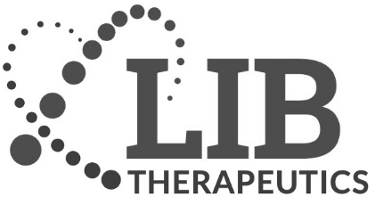Once a month, potential “best-in-class” lipid-lowering drugs apply for listing
December 21, 2024
Source: drugdu
 523
523
 Today, LIB Therapeutics announced that it has submitted a biologics license application (BLA) to the U.S. FDA, seeking approval for its third-generation PCSK9 inhibitor lerodalcibep to lower low-density lipoprotein cholesterol (LDL-C) to treat patients with atherosclerotic cardiovascular disease (ASCVD), as well as patients with very high or high ASCVD risk and primary hyperlipidemia (including heterozygous and homozygous familial hypercholesterolemia, HeFH/HoFH). At the same time, LIB Therapeutics is preparing to submit a marketing application (MAA) to the European Medicines Agency (EMA), which is expected to be completed in mid-2025.
Today, LIB Therapeutics announced that it has submitted a biologics license application (BLA) to the U.S. FDA, seeking approval for its third-generation PCSK9 inhibitor lerodalcibep to lower low-density lipoprotein cholesterol (LDL-C) to treat patients with atherosclerotic cardiovascular disease (ASCVD), as well as patients with very high or high ASCVD risk and primary hyperlipidemia (including heterozygous and homozygous familial hypercholesterolemia, HeFH/HoFH). At the same time, LIB Therapeutics is preparing to submit a marketing application (MAA) to the European Medicines Agency (EMA), which is expected to be completed in mid-2025.
Cardiovascular disease (CVD) affects hundreds of millions of people worldwide, and the number of related deaths exceeds the sum of cancer, chronic lung disease and diabetes. It is estimated that by addressing the factors that cause or aggravate CVD, about 80% of premature deaths caused by CVD can be prevented. ASCVD accounts for approximately 85% of all cardiovascular deaths. ASCVD is caused by the formation and growth of plaque on the inner walls of arteries, and atherosclerotic plaques are primarily composed of LDL-C, which accumulate over time. Long-term elevated LDL-C levels in the body increase an individual's risk of cardiovascular events such as heart attack or stroke. Many patients with elevated LDL-C levels also have other medical conditions, such as high blood pressure, obesity or diabetes, which significantly increase their risk of ASCVD and cardiovascular events.
The BLA submission is primarily supported by a global Phase 3 registration study, collectively known as the LIBerate program, which includes 2,900 subjects, including more than 2,300 patients who are receiving maximum tolerated doses of statins and other oral lipid-lowering drugs but need to further reduce their LDL-C levels. The Phase 3 LIBerate clinical study evaluated the safety and efficacy of lerodalcibep in patients with CVD or patients at very high and high risk of CVD, including patients with HeFH and HoFH. In these pivotal registration studies, patients were treated with lerodalcibep once a month for up to 52 weeks. In addition, more than 2,400 patients continue to participate in the 72-week open-label extension trial (OLE).
Last month, LIB Therapeutics announced positive results from two sub-studies in the LIBerate-OLE open-label extension study, which were also presented at the 2024 American Heart Association (AHA) meeting. Of the 1,655 patients who completed the 52-week placebo-controlled Phase 3 LIBerate-CVD and LIBerate-High Risk trials, 1,468 (90%) patients entered the 72-week open-label extension study, and the main results of the analysis are as follows:
During the additional 72 weeks of treatment in the open-label extension study, the reduction in LDL-C levels in patients was always greater than 60% (P<0.0001) compared with baseline, and there was no weakening signal, including those who received lerodalcibep for more than 2 years.
More than 90% of patients achieved a ≥50% reduction in LDL-C from baseline and reached a new lower LDL-C target of <55 mg/dL, including those with CVD or at very high risk of CVD.
Lerodalcibep reduced mean apolipoprotein B (Apo B) levels by 45% and median lipoprotein (a) - Lp(a) levels by 30-32%.
The drug was well tolerated, with <1% mild or moderate injection site reactions, <2% of subjects discontinuing the trial due to side effects, and no new safety issues were identified.
Of the five Phase 3 clinical trials in the LIBerate project, 800 HeFH patients were included, of whom 703 (88%) continued to participate in the 72-week open-label extension trial. Results of the trial analysis of these patients are as follows:
During the additional 72 weeks of treatment, HeFH patients achieved a 50%-53% reduction in LDL-C levels (P<0.0001), with an absolute reduction of 72-76 mg/dL, and no signs of attenuation. Despite these patients' high baseline LDL-C, more than 80% of patients achieved a ≥50% reduction in LDL-C levels, and more than 70% of patients reached the new lower recommended LDL-C target.
Lerodalcibep reduced patients' mean Apo B by 36% and median Lp(a) levels by 25%. Lerodalcibep continued to be well tolerated, with no new safety issues identified. Lerodalcibep is a potential "best-in-class" new third-generation PCSK9 inhibitor. The drug is administered as a once-monthly, low-volume subcutaneous injection that does not require refrigeration, offering unique convenience, making it a superior alternative to existing PCSK9 inhibitors. Lerodalcibep is a small binding protein (SBP) whose PCSK9 targeting binding domain is an engineered 11-kDa peptide that can bind to human PCSK9 protein with subnanomolar high affinity. In addition, by fusing with human serum albumin (HSA), lerodalcibep significantly prolongs its plasma half-life to 12-15 days.
https://mp.weixin.qq.com/
By editorRead more on
- Gan & Lee Pharmaceuticals’ new PROTAC drug GLR2037 tablets have been approved for clinical trials to enter the field of prostate cancer treatment March 3, 2026
- AideaPharmaceuticals plans to raise no more than 1.277 billion yuan through a private placement to focus on the global clinical development of innovative HIV drugs March 3, 2026
- Giant Exits! Its Star Business Acquired March 3, 2026
- Focusing on cardiovascular and cerebrovascular diseases! OpenMediLead Medical Intelligence Dual Engines Launch Internal Testing, Connecting Drug Development and Clinical Diagnosis in a Closed Loop March 3, 2026
- Innovent Biologics Announces Approval of New Indication for BTK Inhibitor “Pitubrutinib” in China March 3, 2026
your submission has already been received.
OK
Subscribe
Please enter a valid Email address!
Submit
The most relevant industry news & insight will be sent to you every two weeks.



